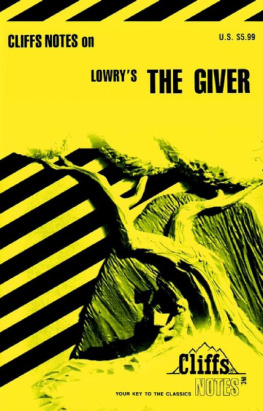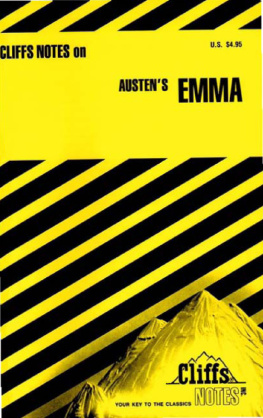Lola Amis - Cliffsnotes on Wrights Native Son
Here you can read online Lola Amis - Cliffsnotes on Wrights Native Son full text of the book (entire story) in english for free. Download pdf and epub, get meaning, cover and reviews about this ebook. year: 2007, publisher: HMH Books, genre: Art. Description of the work, (preface) as well as reviews are available. Best literature library LitArk.com created for fans of good reading and offers a wide selection of genres:
Romance novel
Science fiction
Adventure
Detective
Science
History
Home and family
Prose
Art
Politics
Computer
Non-fiction
Religion
Business
Children
Humor
Choose a favorite category and find really read worthwhile books. Enjoy immersion in the world of imagination, feel the emotions of the characters or learn something new for yourself, make an fascinating discovery.
Cliffsnotes on Wrights Native Son: summary, description and annotation
We offer to read an annotation, description, summary or preface (depends on what the author of the book "Cliffsnotes on Wrights Native Son" wrote himself). If you haven't found the necessary information about the book — write in the comments, we will try to find it.
CliffsNotes on Richard Wrights Native Son, including life and background of the author, list of characters, critical commentaries, character analyses, essay topics and review questions, and selected bibliography.
Cliffsnotes on Wrights Native Son — read online for free the complete book (whole text) full work
Below is the text of the book, divided by pages. System saving the place of the last page read, allows you to conveniently read the book "Cliffsnotes on Wrights Native Son" online for free, without having to search again every time where you left off. Put a bookmark, and you can go to the page where you finished reading at any time.
Font size:
Interval:
Bookmark:
Copyright 1971 Houghton Mifflin Harcourt Publishing Company
All rights reserved.
hmhco.com
cliffsnotes.com
For information about permission to reproduce selections from this book, write to or to Permissions, Houghton Mifflin Harcourt Publishing Company, 3 Park Avenue, 19th Floor, New York, New York 10016.
The publisher and the author make no representations or warranties with respect to the accuracy or completeness of the contents of this work and specifically disclaim all warranties, including without limitation warranties of fitness for a particular purpose. No warranty may be created or extended by sales or promotional materials. The advice and strategies contained herein may not be suitable for every situation. This work is sold with the understanding that the publisher is not engaged in rendering legal, accounting, or other professional services. If professional assistance is required, the services of a competent professional person should be sought. Neither the publisher nor the author shall be liable for damages arising herefrom. The fact that an organization or website is referred to in this work as a citation and/or a potential source of further information does not mean that the author or the publisher endorses the information the organization or website may provide or recommendations it may make. Further, readers should be aware that Internet websites listed in this work may have changed or disappeared between when this work was written and when it is read.
Trademarks: CliffsNotes, the CliffsNotes logo, Cliffs, cliffsnotes.com, and all related trademarks, logos, and trade dress are trademarks or registered trademarks of Houghton Mifflin Harcourt Publishing Company. All other trademarks are the property of their respective owners. Houghton Mifflin Harcourt is not associated with any product or vendor mentioned in this book.
eISBN 978-0-544-18291-2
v1.0218
Richard Wright began life on September 4, 1908, in Natchez, Mississippi, on a small farm much in the same manner that his hero, Bigger Thomas, began his life. Deprived, poor, and segregated against, Wright spent much of his early childhood in pain, fear, and shame. His South, like that of Biggers South, deprived him of a normal childhood. He was continually beaten by his mother and his grandmother for trying to fight back at the segregation imposed upon him. He was also beaten by the whites to whom he had to turn for jobs, and he was resentful of the Jim Crow rules by which he had to live. It was with a strong determination, then, that Wright strengthened himself against defeat. He vowed early in his nomadic childhood to leave the South and to go north where blacks were treated like human beings.
Deserted early by an indifferent father, Wright and his brother were left in the care of a sick mother whose weary existence showed in her treatment of her two sons. Wrights autobiography, Black Boy, which takes the reader behind the scenes of the first seventeen years of his life in the South, reveals sporadic moves from one town to another, from one job to another, and from one relative to another, always replacing the inconsistencies of his life with other inconsistencies.
At the age of fifteen, Richard Wright wrote his first short story, The Voodoo of Hells Half-Acre, for the local newspaper and submitted it in three parts. The story perplexed and frightened his family. His grandmother said that it was a sin to write fiction; being a staunch member of the Seventh-Day Adventist church, her doctrines would not even allow the eating of meat. So, not being able to explain to any member of his family his deep desire to write, Wright dropped the matter for the time but continued to read all the fiction he could find.
Because his family moved from place to place, Richard held a variety of jobs, from porter to post office clerk to grocer to hospital attendant. However, he always kept his major goal in mind: to escape the cruelties of segregation.
It was the Great Depression that drove a large number of blacks toward the North, and, along with them, were Richard Wright, his mother, aunt, and brother. At this time jobs for everyone were hard to find and especially so for blacks. Richard wandered from job to job with little success of remaining on one job for long. Swallowing his pride, he applied for welfare, or hand-outs, which consisted of little more than flour, lard, and molasses. However, it was at one of these welfare interviews that Wright met Mrs. Mary Wirth. She took an interest in the young man and helped him get a job in the Federal Negro Theater, a project of the New Deal administration. Biggers move to Chicago thus finally afforded him the opportunity to fulfill a childhood dream: that of becoming a writer. He had studied at the public library (by having a white mans signature affixed to his library card); he had read such writers as Dreiser, Fitzgerald, Mencken, and Lewis. Now he too had a chance to write. And even though the North crowded him and his race into the Black Belt of Chicago, Richard seized this opportunity to join the Federal Writers Project in Chicago and to publish two short stories and a poem.
Wrights publications appeared early in the 1930s in several Communist magazines and newspapers. Then, after becoming a member of the Communist party in 1932, Wright was selected to edit one of its party papers. The affiliation with the Communist party eventually led to Wrights meeting famous American writers, as well as European ones. It should perhaps be said that one can easily understand Wrights association with Communist groups: capitalism and racism were enemies of the black man. Blacks in Chicago and other large cities were being encouraged to join the Communist party; it promised something capitalism denied the black man: brotherhood for all.
In 1937, when Wright was sent to New York to become the editor of the Daily Worker, he readily accepted the position. Yet it was this affiliation with the Communist party that has caused many white Americans to shun his publications and to credit him with being just a black man with a loud mouth. Much of the criticism against Richard Wright by his early white critics has stemmed from his being, at one time, a Communist.
Wright, however, did not listen to the critics. He did listen to his new friends and the party, and they encouraged him to continue writing. Thus he began a series of short stories, later published as Uncle Toms Children. Like Native Son and Eight Men, this first book of Wrights definitively portrays the black mans human condition in white America. All of the characters are, in effect, native sonsproducts of the white caste ideology. All of them exist in abject conditions of shame, hatred, and, most of all, fear. They are treated by the whites as less than human; existence is possible only with excesses of religion, sex, whiskey, or violence. It was Wrights goal to show to the world that the black mans condition in America could be traced directly to his treatment by the white man.
It was not until January 1954 that Wright published a volume of political nonfiction. He had, however, been political minded; he had made political speeches all over Europe. This book could easily have been no more than collected speeches, but Wright was never a man to rest on his laurels. He aimed this new volume at Africa; it concerned Ghana and the abject conditions of the black people and their treatment by the British. Wright struggled over a title for this huge volume of material and finally decided upon Black Power. Many readers today, of course, do not realize that it was Wright himself who first used the term which has now become known in many other contexts. Unfortunately, Black Power was not received well on either side of the ocean. Like Harriet Beecher Stowes
Next pageFont size:
Interval:
Bookmark:
Similar books «Cliffsnotes on Wrights Native Son»
Look at similar books to Cliffsnotes on Wrights Native Son. We have selected literature similar in name and meaning in the hope of providing readers with more options to find new, interesting, not yet read works.
Discussion, reviews of the book Cliffsnotes on Wrights Native Son and just readers' own opinions. Leave your comments, write what you think about the work, its meaning or the main characters. Specify what exactly you liked and what you didn't like, and why you think so.













